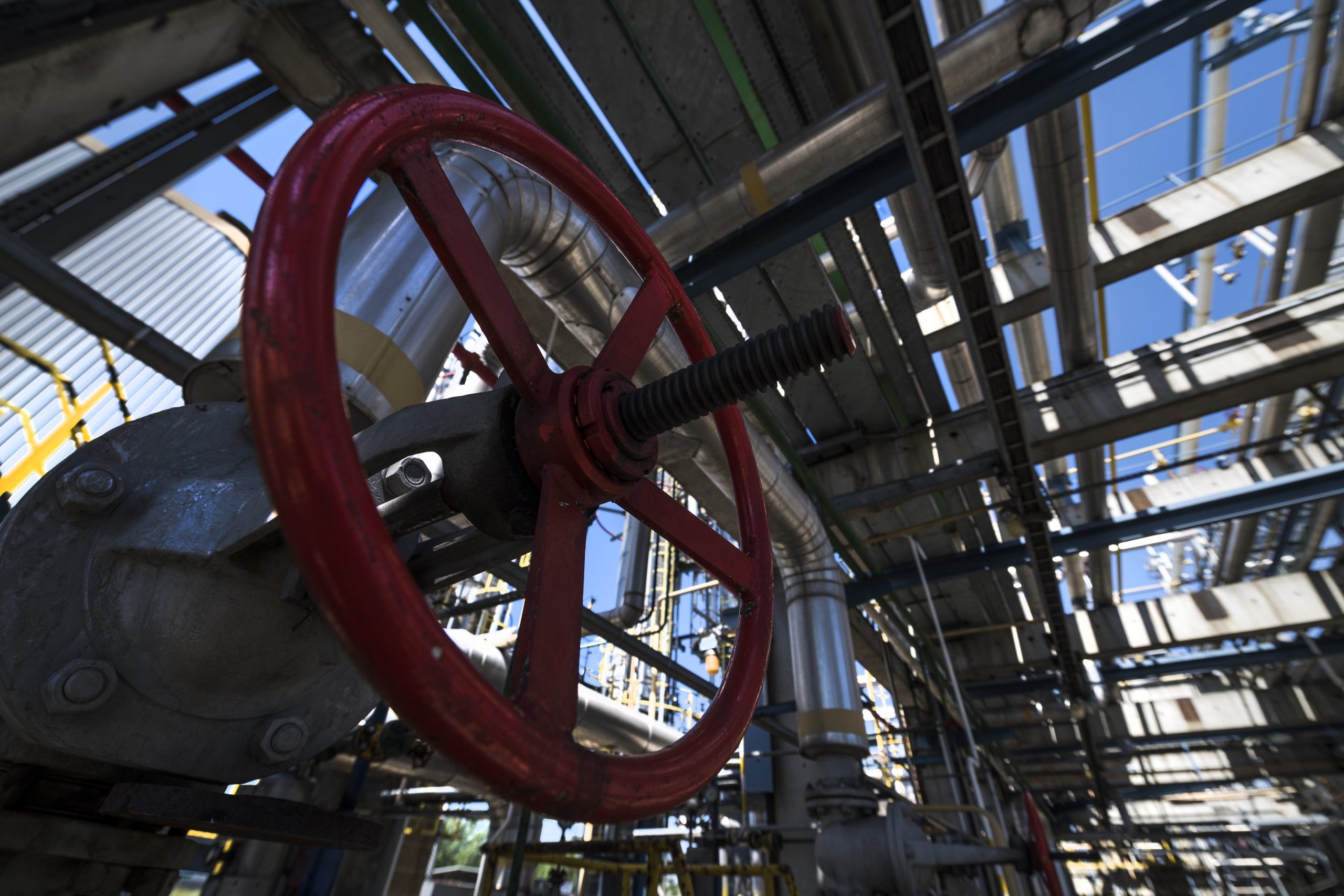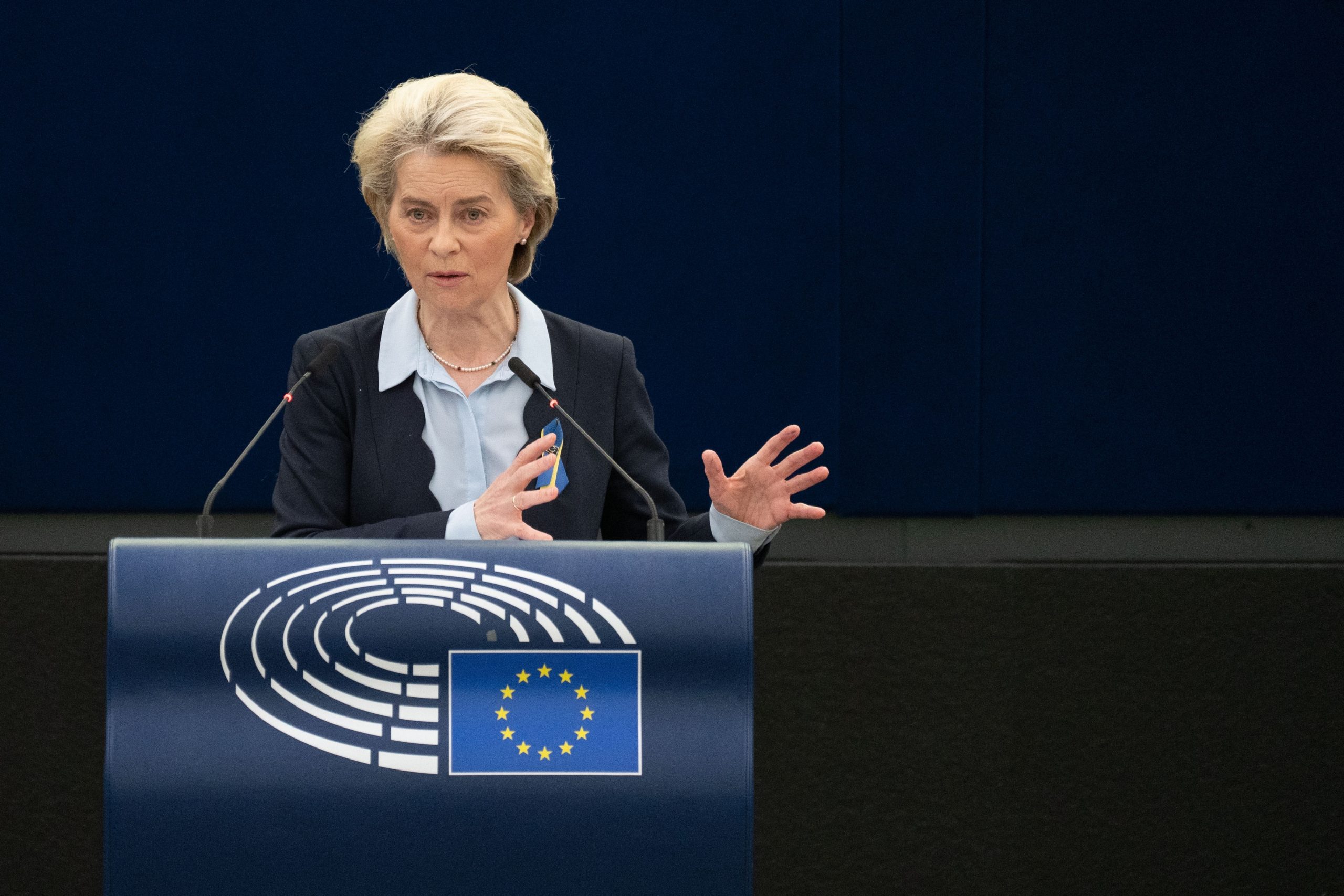
Hungary receives more than half of its crude oil from Russia, so a transition to other sources would not be short of its challenges.Continue reading

The European Commission has put forward a nearly 300-billion-euro plan that would eliminate the European Union’s reliance on Russian energy imports “well before 2030,” Politico reports. In line with existing sanctions against Russia for invading Ukraine, the EU now has a 297 billion euro framework to phase off its overreliance on Russian energy while modernizing its energy infrastructure and making it more environmentally sustainable.
On Wednesday, European Commission President Ursula von der Leyen introduced REPowerEU, a set of legal acts, recommendations, guidelines, and strategies. According to Politico, it is based on saving EU energy, substituting Russian gas with other fossil fuels, boosting green energy and financing new infrastructure such as pipelines and liquefied natural gas terminals.
Our proposals are addressing Europe’s energy security, our defence and support to Ukraine.
We must now reduce as rapidly as possible our reliance on Russia in energy.
We can.
https://t.co/SF640dlGl6— Ursula von der Leyen (@vonderleyen) May 18, 2022
“Today we’re taking our ambition to yet another level to make sure that we’ll be independent of Russian fossil fuels as quickly as possible,” the Commission President said.
According to the Commission, 60 billion cubic meters (bcm) of Russian gas can be replaced in 2022 (155 bcm was imported last year). The plan is to turn to other suppliers for natural gas: the United States, Egypt, Israel and the Gulf countries. Biomethane – a more renewable energy source from animal manure, crops and waste – will be used more often, while coal and nuclear power plants will operate for longer hours.
Funding for the plan will come mostly from the EU’s Recovery and Resilience Facility (RRF), initiated during the heat of the pandemic. Member States will have access to 225 billion euros in facility loans, 20 billion euros in grants after the EU sells 250 million CO2 emission permits, and Member States will be allowed to transfer up to 12.5 percent of their cohesion policy funds and 7.5 percent of their agricultural funds to REPowerEU projects, Politico writes. That means 72 billion euros in support and 225 billion euros in loans available for the project.
Meanwhile, Hungary has not received the 2,100-2,500 billion forints (EUR 5.4 billion – 6.4 billion) from the RRF due to ongoing rule of law violation issues. Furthermore, (only) 20 billion of the nearly 300 billion euros would be provided from a new source of funding. The rest through loans and existing funds. Thus, according to EU Monitor, “only a fraction of the new fund will be available to Budapest.”
Portfolio reports that the package involves a 2 billion euro investment toward reducing reliance on Russian oil, which has been the most glaring issue in recent debates around it. Hungary will be able to access these funds to assist in financing oil and gas company Mol’s refineries in their transition away from Russian crude oil. 10 billion euros will be available for investments regarding fossil fuels and liquefied natural gas, with the rest intended for endeavors in renewable energy throughout the EU.
President von der Leyen has described the proposed plan not only as a shifting away from Russian energy, but a “speed charging of our European Green Deal.”
The Commission plans to raise the EU’s use of green power by 2030 from 40 to 45 percent by making renewable energy projects more accessible and introducing a legal obligation to install solar panels on all new residential buildings by 2029.
The 2030 EU energy savings target could also be increased from 9 to 13 percent, and demand for oil and gas could be cut by 5 percent if more sustainable lifestyles are ensured.
The REPowerEU plan is clearly very extensive and ambitious, but without approval from all 27 Member States it cannot be brought into effect. Its debate has been perhaps the greatest obstacle facing it, as certain governments with a heavy reliance on Russian oil and gas, particularly Hungary, have raised concerns over its implementation.
After a meeting of EU foreign ministers in Brussels on Monday, Minister of Foreign Affairs and Trade Péter Szijjártó said that no deal had been concluded on an oil embargo, as the Orbán government maintains its opposition to the proposal.
Government officials have stated that in its current form, REPowerEU would cause “huge damage” to the Hungarian economy, provoking a 55-60 percent increase in fuel prices and greater inflation.
Szijjártó stated that the EU must continue to allow oil imports from Russia through pipeline transit. According to him, this could maintain the integrity of sanctions while reducing their impact on the Hungarian economy, since most Russia oil is delivered to Europe by sea.
In order for Hungary to modernize its energy infrastructure the way the Commission plans, experts project a 15-18 billion euro investment over the course of 5 years, Szijjártó said. This includes 500-550 million euros needed to completely restructure Hungary’s oil refineries and growing crude oil importing capacities from Croatia by a cost of 200 million euros.
For the restructuring of oil imports throughout the entire EU, 2 billion euros are available, making the demand of funding for the project quite unrealistic. Furthermore, until there is consensus between Brussels and Budapest on the rule of law issue, the arrival of most of the funds from the Recovery and Resilience Facility is doubtful.
The Foreign Minister has repeated that the Hungarian government will not join the deal until the Commission “ensures a solution for the problems it causes.”
Featured photo via europarl.europa.eu